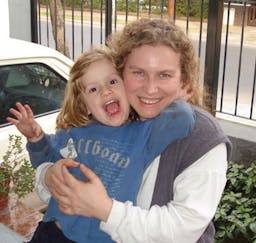Gender and democracy: making it direct, making it real
Apr 28, 2022
Story
The tools of Web 2.0 and citizen journalism are precious for the most disempowered people. Having the possibility to control the information about us, produced by us and to share the knowledge about what affects us, being able to confront misogyny in the media and to communicate with each other in a fast and cheap way is perhaps the first step to really have a global and powerful movement, for women, for LGTB, for disabled people and for many other groups.
The concept of citizen journalism is a big advance in real democracy. In some countries, debates about freedom of expression are frequent. Freedom of expression has a great value and must be part of any society that labels itself as “democratic”. But, can it be real without the possibility for everyone to say what one wants with no one “editing” your words? Here in Argentina we have seen that the concentrated mass media are not at all guarantee of freedom of expression. The two major newspapers have become two enormous multimedia groups, with enough power to press the national government and the parliament. They have both been part of the last military dictatorship we endured. They continue to lie and hide information about that. They control the information about the agribusiness, in which both have major interests and which is impoverishing rural people, especially women, and severely damaging their health. Web 2.0 has proven the only way to erode the wall of silence they impose. Through the internet any of us can tell our truths, voice our opinions, confront lies and demand better quality of information.
Women and LGTB people in Argentina are already taking great advantages of the uses of Web 2.0. As a lesbian activist, I still remember the times when I began my activism around 1995 and the LGBT movement depended on printed bulletins to get information. News was slowly. Appeals for help took to long to reach those wanting to respond. Then we have the mailing lists and were amazed to be able to be in touch with so many people, living in many distant countries, so fast. When the internet got massive, our activism reached another level. We were able to easily disseminate not only news, but also texts and even photos. We could make public the threats, the mistreatments, the police brutality. We could share our experiences of organizing and resistance. Now we have Web 2.0, a powerful tool to build community and to strengthen the political movement. Young people who used to be isolated, have an easy and accessible way to feel part of a community, to gather information, to learn, to make friends. The same happens with the LGTB people in minor towns and villages in the interior of the country or in the poorest neighbourhoods in the big cities. Web 2.0 has allowed the Argentinean LGTB movement to grow in number and in strength, and has also made it really diverse, voicing much more different points of view.




